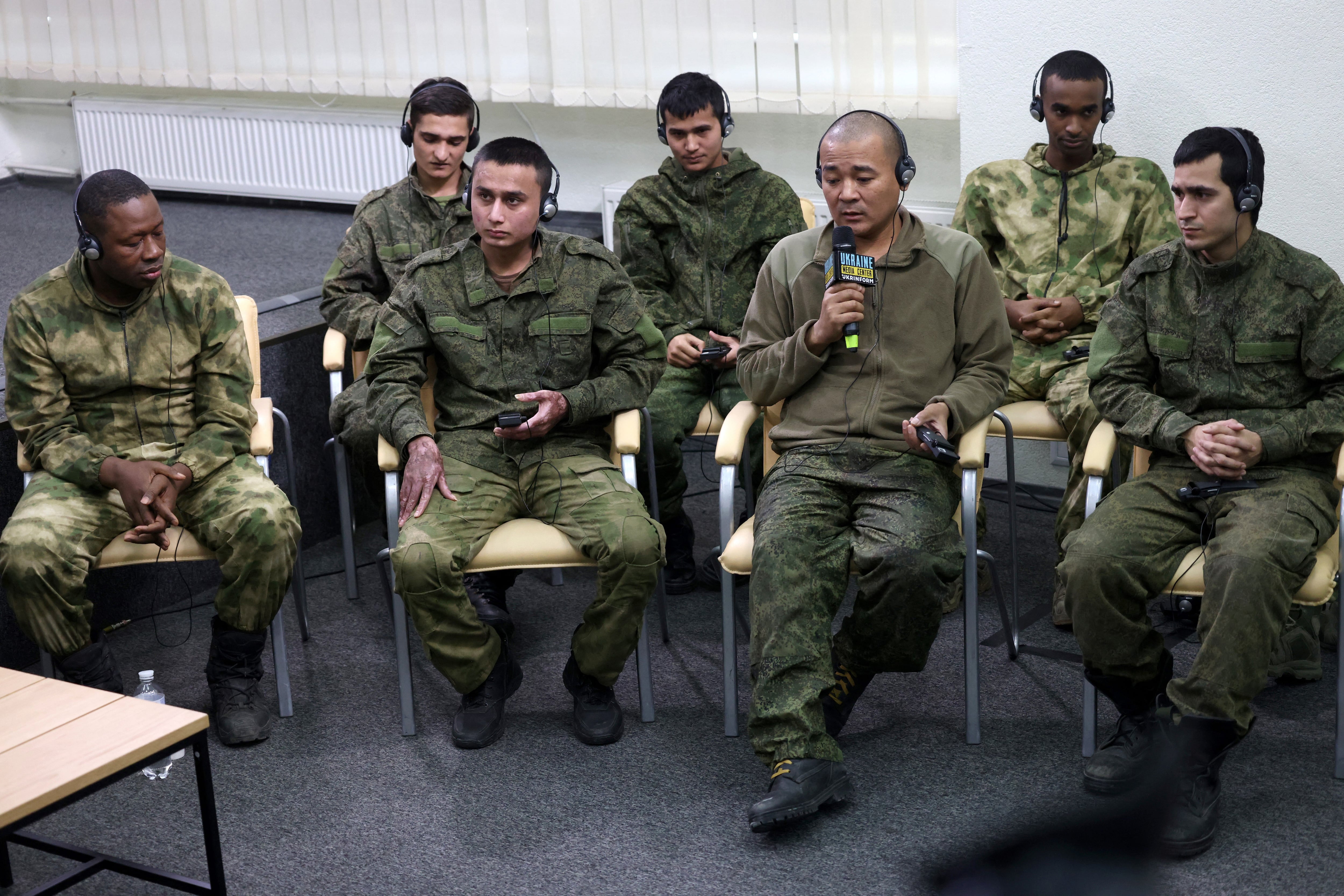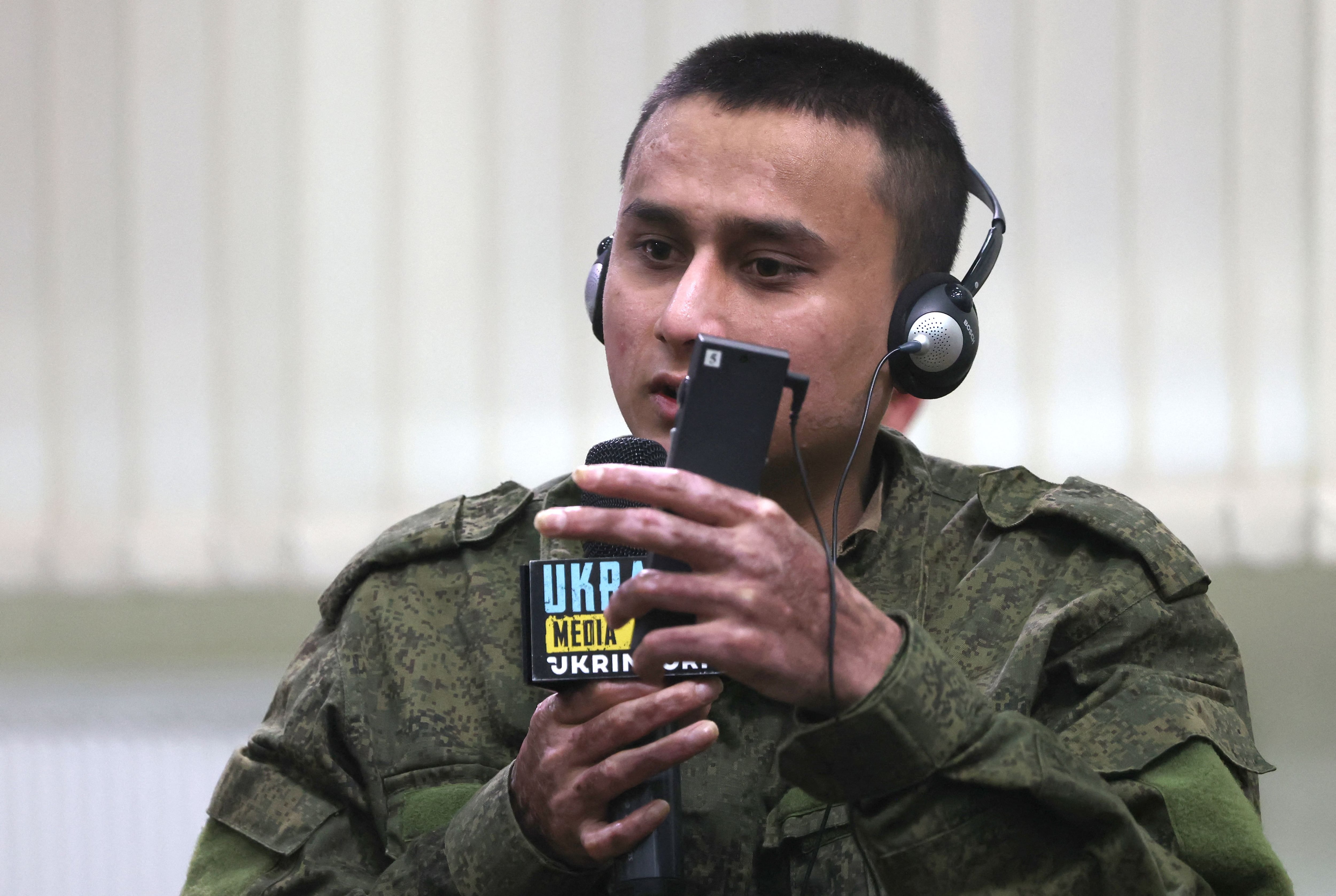Foreign soldiers captured in Ukraine They say they fled Cuba, Nepal or Somalia in search of a better life in Russia and they ended up in the Russian army fighting at the front, despite everything.
At a press conference organized by the Ukrainian authorities in Kiev, eight prisoners of war from Cuba, Nepal, Sierra Leone and Somaliathey explained that they traveled to Russia Lured by promises of a good salary, they were deceived and ended up sent to war.
LOOK: Putin’s new re-election: how a former KGB agent became an essential and authoritarian leader
Organizers presented these men as “mercenaries” from “southern” countries and ensured that they were treated in the same way as Russian prisoners of war.
The AFP was unable to speak to them separately and decided not to identify them, in line with the Geneva Convention, although the organizers did so.
Everyone said they were expressing themselves of their own free will, but were surrounded by agents with their faces covered.
His statements coincide with what AFP journalists in India and Nepal investigated about the Russian army’s foreign recruitment methods.
A 35-year-old Cuban with dreadlocks explained that he responded to a Facebook post proposing work in Russia in the construction sector. “I wasn’t thinking about going to war,” he says.
With tears in his eyes, a Sierra Leonean man said he paid a recruiter and traveled to Russia in hopes of finding “a good job” to support his large family.
According to him, he only realized later that he had actually signed a contract in Russian with Kremlin forces.
In other cases, they knew they were going to join the army and thought they would have subordinate roles, but not that they would go into combat.

First line
“When the Russians offer these people $2,000 a month and say they will be used as bodyguards or in the third line, they are very tempted,” Petro Yatsenko, spokesman for the Ukrainian service in charge of prisoners of war, told AFP. .
A young Somali man with short hair admits he enlisted. His goal was to give “a good future” to his family.
“I didn’t know I would be on the front line,” says this man, stating that he was “sent there without knowing the language.”
A 32-year-old Nepali man, who said he had seen videos on TikTok in which his compatriots joined the Russian army, acknowledged that his motivation was “of course the money”.
AFP journalists in India and Nepal investigated this type of recruitment and found that it is typically done through informal intermediaries and promotional videos posted on social media.
Candidates without military experience are guaranteed non-combat duties and are promised a permanent visa in Russia.
But then, once recruited, they receive basic training in handling weapons and are deployed to the front.

“Mistaken”
Nepal has reported that five of its enlisted citizens are prisoners of war in Ukraine and that at least 12 others have died in the war. He also asked Moscow to repatriate the other enlisted men. The Kremlin, consulted by AFP, did not comment.
Among the eight prisoners presented in Kiev, the only one who spoke Russian, in a very basic way, was a 24-year-old Nepali man, who had problems holding a pen due to burns on his hands he suffered in the war.
He was studying and working in Russia when he saw recruitment posters to be “a security agent or something like that,” he said.
Yatsenko urges countries to act to prevent their citizens from being “deceived by recruiters who promise them mountains of gold”.
Those who were captured “in military uniform and with weapons” will appear before justice.
“It will be the court that decides whether they are mercenaries”, adds Yatsenko, guaranteeing that Ukraine wants to “return them to their country of origin”.
Source: Elcomercio
I am Jack Morton and I work in 24 News Recorder. I mostly cover world news and I have also authored 24 news recorder. I find this work highly interesting and it allows me to keep up with current events happening around the world.

:quality(75)/cloudfront-us-east-1.images.arcpublishing.com/elcomercio/X3PFEBNWZRD2DGDDWNJSLD6S74.jpg)

:quality(75)/cloudfront-us-east-1.images.arcpublishing.com/elcomercio/SYCFD775UJHYBI4BADPC6Q6IYU.jpg)
:quality(75)/cloudfront-us-east-1.images.arcpublishing.com/elcomercio/RVHQKQIMFBERXFADI4DKMKAWUE.jpg)
:quality(75)/cloudfront-us-east-1.images.arcpublishing.com/elcomercio/EKGTFKMD6BCWHMLXYXFV6MQ4F4.jpg)

